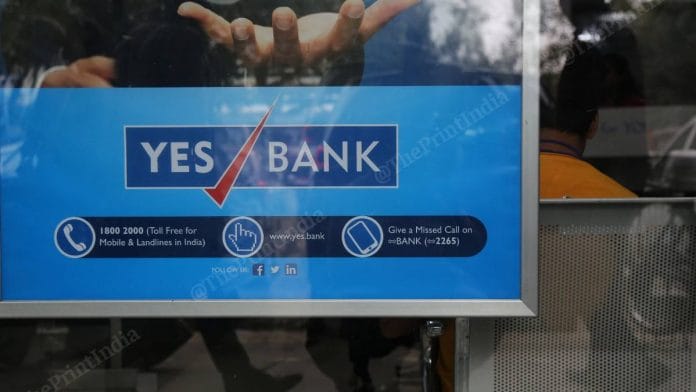New Delhi: The Delhi High Court Monday said that prima facie Yes Bank could not have declared a private company’s account as non-performing asset (NPA) for its failure to pay loan installments due to coronavirus pandemic.
Justice Sanjeev Sachdeva, who conducted the hearing through video conferencing, took on record the statement made by the counsel for Anant Raj Ltd that it will make payment on or before April 25, the instalment which fell due as on January 1, 2020 along with the interest accrued till the date of payment irrespective of the lockdown position.
Prima facie, I am of the view that the classification of the account of the petitioner (company) as an NPA on March 31, 2020 could not have been done by the respondent (bank). Accordingly, status quo ante is restored qua the classification of the account of petitioner and the account classification as it stood on March 1, 2020 shall stand restored, the judge said.
The court was hearing a plea by the real estate company seeking direction to the bank not to take any coercive steps for its failure to pay loan installments since January this year.
The court clarified that the payment would be without prejudice to the rights and contentions of the parties and listed the plea for further hearing before the concerned bench on May 4.
The court had on April 3, directed the bank not to take any coercive action against the company, which has been declared as NPA by the computer for failing to pay loan installments.
It was informed by the counsel for the bank that the declaration of the status of an account as an NPA was an automated process and the computer system automatically picks up any default which has not been serviced for a period of 90 days and declares the account as NPA.
He further said that the company was in default with regard to the instalment which was payable on January 1, 2020, accordingly, the computer system automatically on March 31, changed the status of the account as a NPA.
The company told the court that the bank had earlier proposed to take coercive steps against it through two e-mails of March 25 and 27.
It said that in the e-mails, the bank has informed the company that since the instalments for the months of January and February, 2020 are due and in case the amount is not paid by March 31, the petitioner’s account shall be declared as a non-performing asset.
The petitioner’s counsel had contended that in view of the March 27 circular issued by the Reserve Bank of India (RBI), which gives moratorium on terms of loan, the bank cannot declare the company’s account as a non-performing asset and have to defer any coercive action till June 1, this year.
The counsel for the bank had argued that the moratorium is applicable only with regard to instalments which fell due after March 1, 2020 and are not applicable on instalments that had fallen due as on March 1, this year.
The court noted that the restriction on change in classification of the account showed that RBI has stipulated that the account which has been classified as Special Mention Account (SMA)-2 cannot further be classified as a non-performing asset in case the instalment is not paid during the moratorium period, that is, between March 1 and May 31, 2020, and status quo qua the classification as SMA-2 shall have to be maintained.
The effect of the same would be that for a period of three months there will be a moratorium from payment of that instalment. However, stipulated interest and penal charges shall continue to accrue on the outstanding payment even during the moratorium period. If post moratorium period, the borrower fails to pay the instalment, classification would then automatically change as per the IRAC guidelines, the court said.
According to the plea, during 2010-15, the company had availed loan facility from the bank to a total of Rs 815 crores which has been paid in full. Thereafter, between 2016-18, the bank extended further loan facilities to it through several sanction letters.
As per the petitioner firm, it had availed loan facilities of Rs 1570 crores out of which it has repaid about Rs 1056 crores apart from interest running into hundreds of crores.
It claimed that due to the outbreak and spread of COVID-19 across the globe in December, 2019, the economic condition of the real estates industry was adversely affected.
The plea said the firm had been regularly servicing the loans in terms of the conditions till December 31, 2019 and the loan instalment which fell on January 1, 2020, could not be paid by it because of adverse economic conditions brought about by the effects of COVID-19 pandemic.
Also read: This week, depositors will decide if Yes Bank rescue has worked or not






